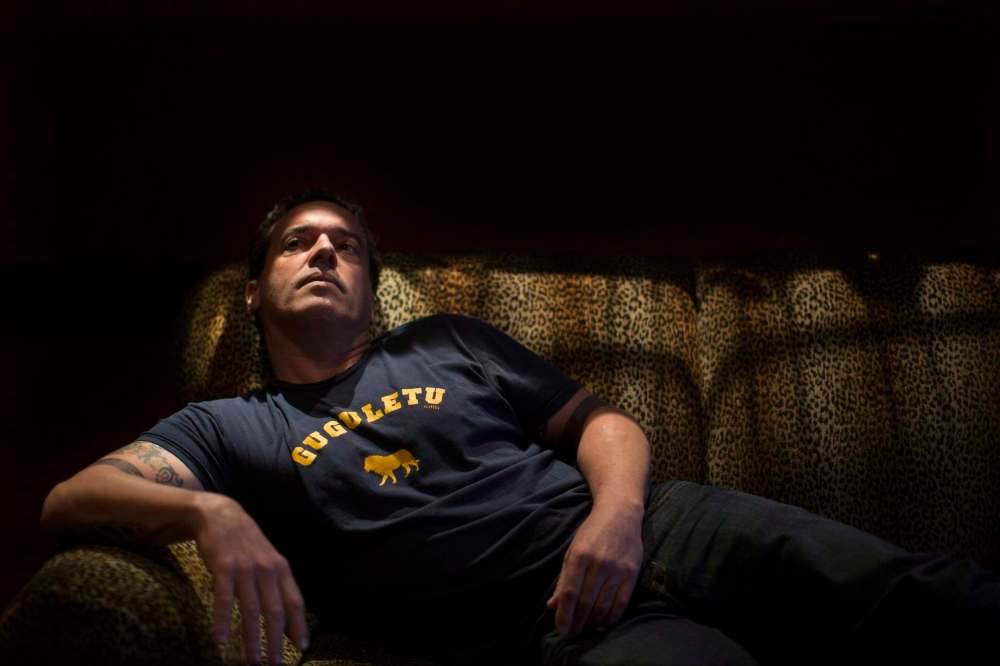Profiting from identity politics
Advertisement
Read this article for free:
or
Already have an account? Log in here »
To continue reading, please subscribe:
Monthly Digital Subscription
$0 for the first 4 weeks*
- Enjoy unlimited reading on winnipegfreepress.com
- Read the E-Edition, our digital replica newspaper
- Access News Break, our award-winning app
- Play interactive puzzles
*No charge for 4 weeks then price increases to the regular rate of $19.00 plus GST every four weeks. Offer available to new and qualified returning subscribers only. Cancel any time.
Monthly Digital Subscription
$4.75/week*
- Enjoy unlimited reading on winnipegfreepress.com
- Read the E-Edition, our digital replica newspaper
- Access News Break, our award-winning app
- Play interactive puzzles
*Billed as $19 plus GST every four weeks. Cancel any time.
To continue reading, please subscribe:
Add Free Press access to your Brandon Sun subscription for only an additional
$1 for the first 4 weeks*
*Your next subscription payment will increase by $1.00 and you will be charged $16.99 plus GST for four weeks. After four weeks, your payment will increase to $23.99 plus GST every four weeks.
Read unlimited articles for free today:
or
Already have an account? Log in here »
Hey there, time traveller!
This article was published 05/01/2017 (3263 days ago), so information in it may no longer be current.
The field of identity politics is actually a minefield. So it is with the case of Joseph Boyden, an acclaimed writer who has made a career for himself by writing from a First Nations perspective. Mr. Boyden currently calls New Orleans home but was born in Toronto.
He’s won a number of awards for his writing about First Nations characters, including, in 2005, the McNally Robinson Aboriginal Book of the Year. He was nominated for the Governor General’s Award for his debut novel, Three Day Road, which focused on two Cree friends during the First World War. He won recognition for his book Through Black Spruce, including the prestigious Scotiabank Giller prize. In 2013, he published The Orenda, a book set in the last years of the Huron Confederacy. He was awarded the Order of Canada in 2015.
Sounds like a successful indigenous writer, right? Except he’s not.

An APTN investigation found his claims to aboriginal heritage are unsubstantiated. According to reporter Jorge Barrara, the only tie Mr. Boyden has to being aboriginal is his uncle, who posed as “Injun Joe” to sell cheap trinkets to tourists near Ontario’s Algonquin Park in the 1960s.
Fort Rouge MLA Wab Kinew is one who has come out in support of Mr. Boyden, someone he identifies as a friend. According to Mr. Kinew, writing in the Globe and Mail: “His place among us was built by writing about, giving back to and befriending us.”
The bottom line is this: Mr. Boyden has laid claim to being an indigenous person for financial and personal gain. He has used this self-conceived identity to gain privileged access to funding, grants, awards and fame.
He received a $5,000 prize from McNally Robinson. A requirement for that award was that the book be written by an aboriginal person. When he won the $50,000 Scotiabank Giller prize, he proclaimed: “I hope that it gives any aboriginal kid the idea that if he wants to write, or she wants to act, or he wants to sing or she wants to rap, you’ve got to do it.” He taught in the Northern College Aboriginal Program from 1996 to 1998.
He has been called upon by the media to speak as an expert in First Nations issues. In fact, in a recent Maclean’s magazine on the suicide crisis in Attawapiskat, Mr. Boyden talked about his own suicide attempt when he was 16. He wrote: “I believe I understand what it is like for an indigenous youth, albeit a mixed-blood one in an urban setting.” Every time he staked his claim as aboriginal, he denied a person who is indigenous that opportunity.
For the women denied the right by the Canadian government and subsequently their band councils to claim status as an “Indian” because they married a white person, Mr. Kinew’s support for Mr. Boyden must be particularly galling. They fought for their ability to reclaim their birthright, finally winning through the courts in 1985. Some of them then faced additional discrimination by their band councils, called C-31 Indians when attempting to get their status reinstated and live on their reserves.
If, as Mr. Kinew has suggested, part of the right to claim indigenous identity comes from being recognized from those within the community, what does it say about those indigenous women so long denied their right? Oh, the irony.
History
Updated on Thursday, January 5, 2017 12:11 PM CST: Changes photo

